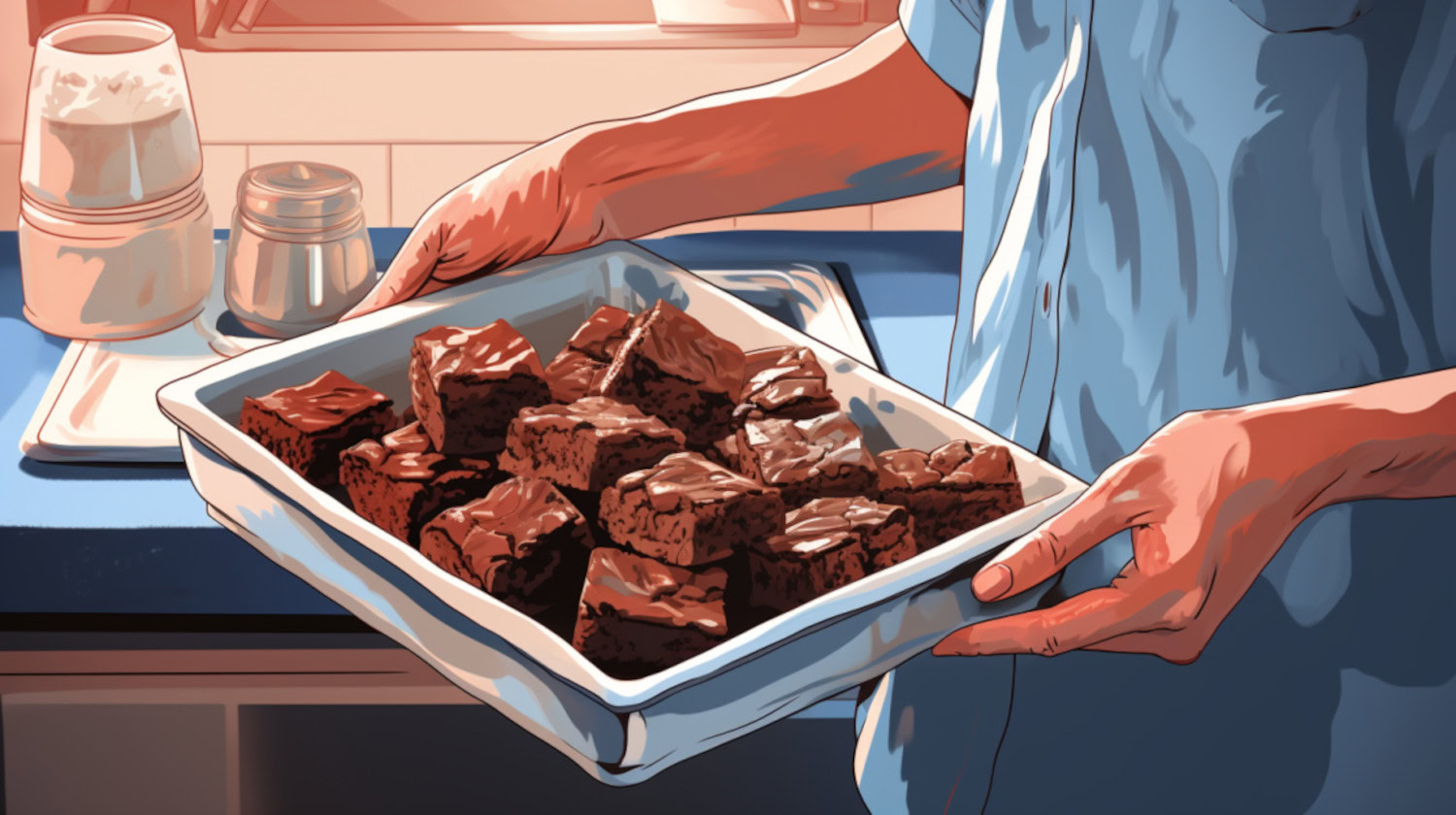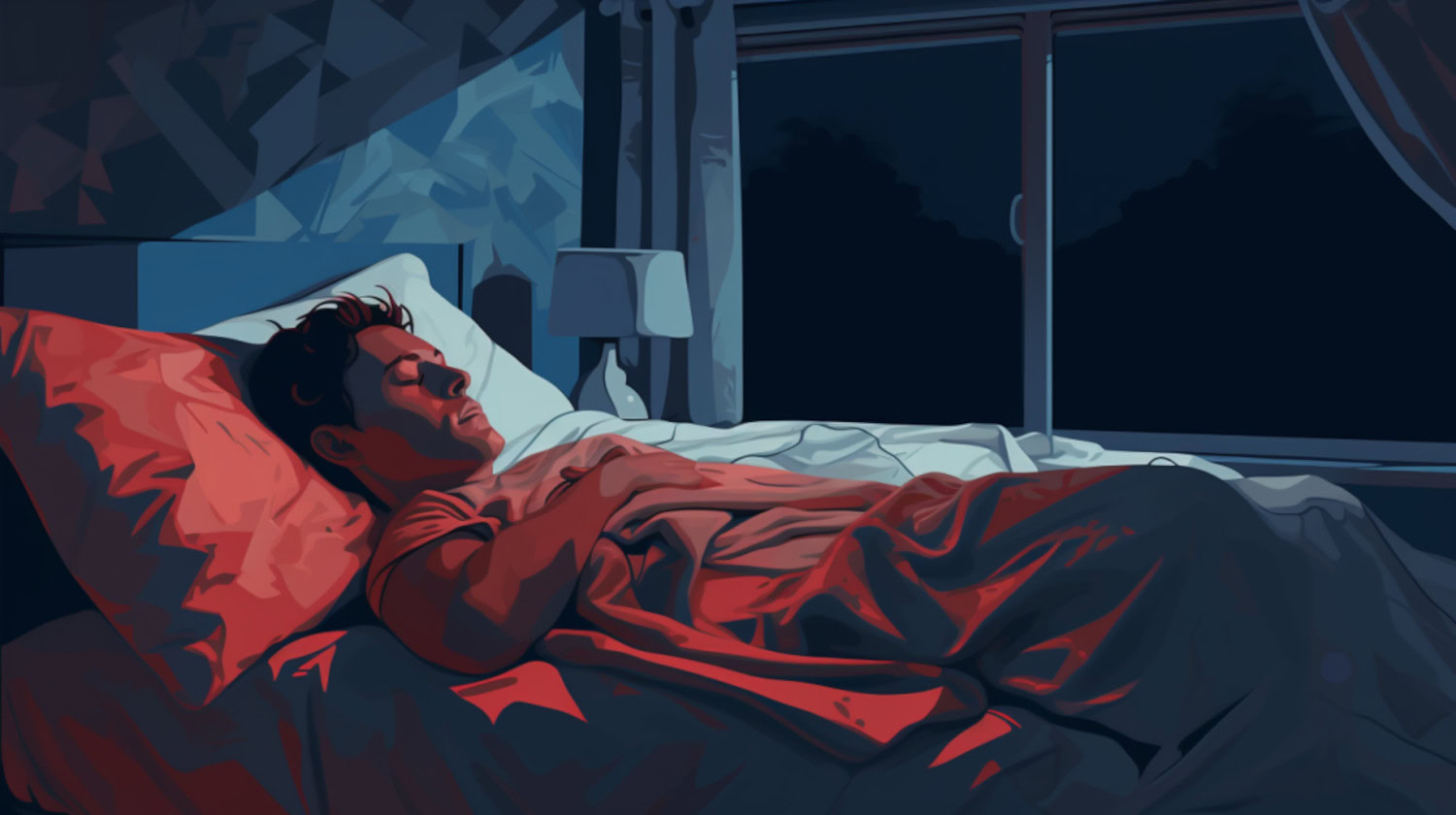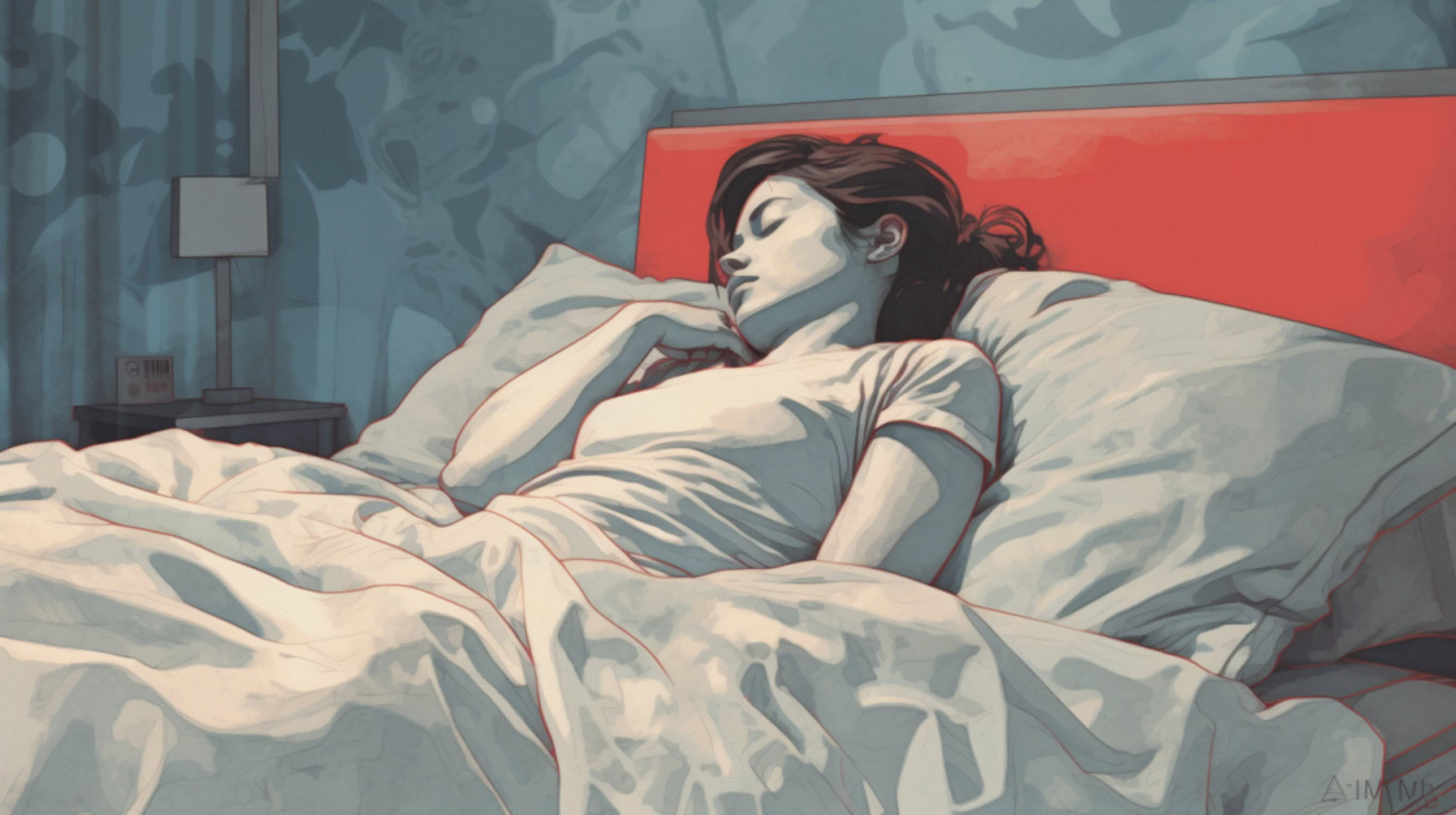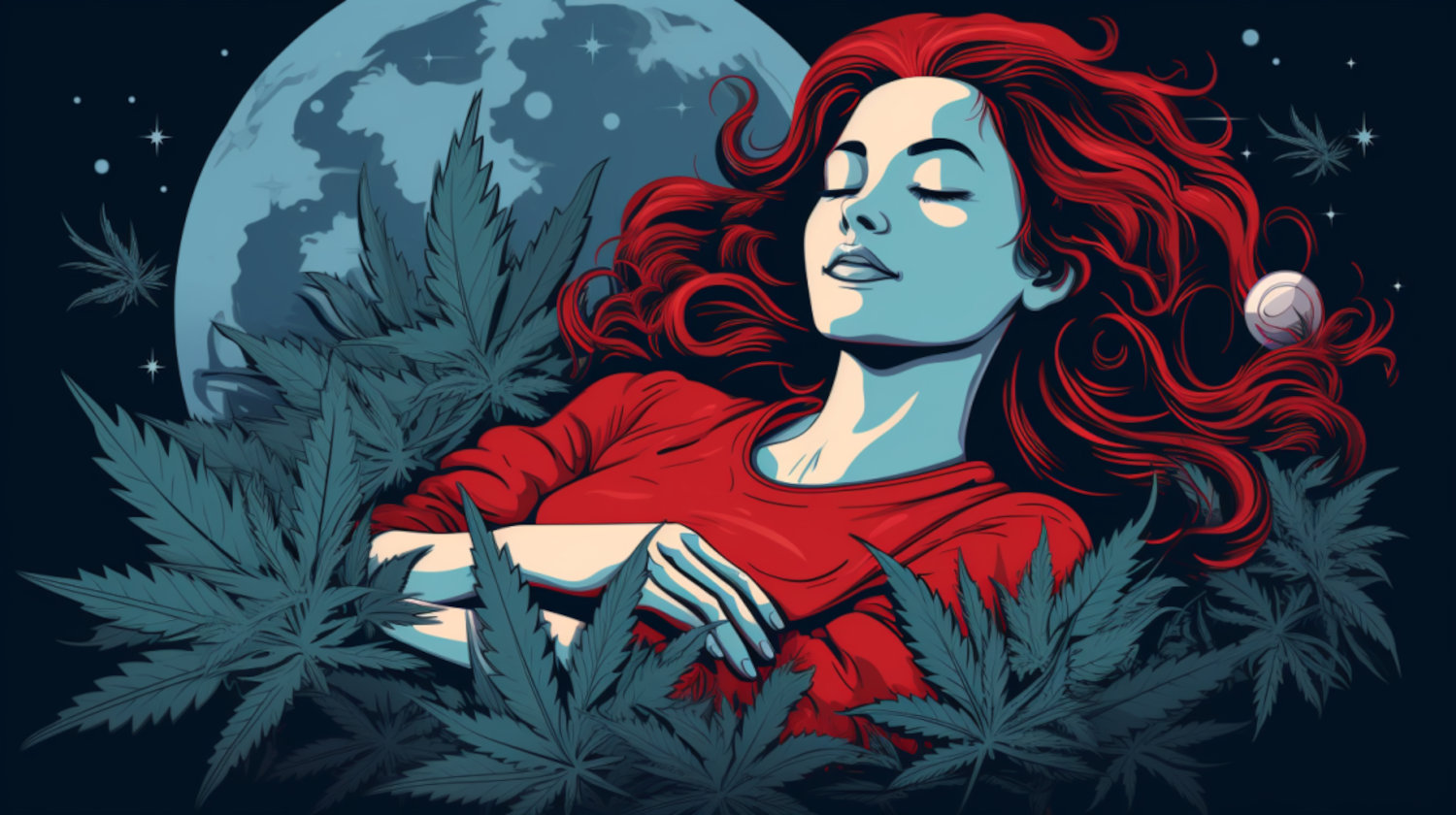In This Article
- The 5 Top Nighttime Gummies and Edibles
- Low-Dose THC + Hint of CBN
- Gentle Microdose Combo
- Balanced 1:1:1 Gummies (THC:CBD in Equal Parts)
- Lean into CBD (High CBD, very low THC)
- Full Complement of Cannabinoids
- Can Gummies Really Help You Get Some Rest?
- How Nighttime Edibles Work (In Plain English)
- How to Choose Bedtime Gummies
- Dose matters.
- Composition matters.
- Set Your Strategy.
- Reading the Labels on Restful Gummies
- Dosage and Serving Size
- Composition
- CBN content
- Terpenes
- Extract type
- Add-ins and allergens
- References
Key Takeaways About Nighttime Gummies and Edibles
- Nighttime gummies can help some people relax and wind down, but they are not a treatment for insomnia, and effects may vary.
- Choose bedtime gummies by dose (start low), composition (ratio, cannabinoids, terpenes), and in your preferred edible format (gummy, chocolate, tablet, capsule, etc.).
- Simple bedtime plan: Pick a low dose > Take it 60–90 minutes before bed > Keep a log and adjust gradually.
We humans spend roughly a third of our lives asleep, yet plenty of us still lie awake watching the clock. It’s no surprise that nighttime gummies (sometimes called restful gummies or bedtime gummies) are a favorite for beginners looking to unwind without lighting up.
Plenty of people reach for cannabis gummies in the evening to ease tension, quiet racing thoughts, or dial down aches or pain. Although cannabis isn’t a cure for insomnia, many consumers say that cannabis helps them relax enough to drift off more comfortably.
Let’s begin with five popular bedtime edible suggestions. From there, we’ll dive into choosing your own bedtime gummies, plus what to look for on the label and how to pick a formula that fits your routine.
The 5 Top Nighttime Gummies and Edibles

The availability of these products may vary by state and brand. Use these as examples of what to look for in your local market.
Low-Dose THC + Hint of CBN
Possible Suggestion: Midnight Blueberry Camino (Kiva) THC + CBN
A classic evening profile pairing with 5mg THC and 1mg CBN per gummy, Packed with relaxing terpenes (beta-caryophyllene, linalool, myrcene) plus chamomile and lavender extracts. The mellow dosing is comfortable for beginners who like a touch of CBN.
Gentle Microdose Combo
Possible Suggestion: Dream THC|CBD|CBN Lavender Mints (Mr. Moxey’s) THC|CBD|CBN
Dream on with 2.5mg each of CBD, CBN, and hemp-derived THC. This microdose blend appeals to those who want a gentler vibe with minimal impairment while still taking the edge off evening tension.
Balanced 1:1:1 Gummies (THC:CBD in Equal Parts)
Possible Suggestion: Tranquility 1:1:1 (Kanha) — Balanced THC:CBD:CBN
This balanced blend provides 5mg each of THC, CBD, and CBN per gummy, plus terpenes myrcene, beta-caryophyllene, and humulene. If you’d like a bit more body heaviness than CBD-dominant options, but not a high dose of THC, this equal-parts approach is a nice middle lane.
Lean into CBD (High CBD, very low THC)
Possible Suggestion: Strawberry 20:1 (Wyld)
High CBD with a touch of THC makes this 20mg CBD 1mg THC gummy suitable for people who prefer a clear-headed and largely non-impairing approach to general relaxation.
Full Complement of Cannabinoids
Possible Suggestion: Fast Asleep - Dream Berry Optimal Gummies (Wana)
Designed for nighttime use, this custom blend of 10mg CBD, 2mg THC, 2mg CBN, and 2mg CBG, plus melatonin and 30 select terpenes, is all about relaxation. Their proprietary formulation promises a fast onset in just 5-15 minutes, helping you transition into a chill mode without next-day grogginess.
The information in this website, including but not limited to images, graphics, text and other materials, is included for informational purposes only. None of the material on this site is intended to substitute for professional medical advice. Always seek advice from your qualified physician or healthcare provider if you have questions before starting any new healthcare regimen, and never disregard professional medical advice based on anything you read on this website or any other website.
This information, including images, is not medical advice. Consult a physician before starting or stopping medications or herbs, including cannabis. Information not evaluated by FDA and not intended to diagnose, treat, cure, or prevent disease.
Can Gummies Really Help You Get Some Rest?
While these cannabis products aren’t approved treatments for insomnia, a survey of adult-use consumers found that about 74% reported using cannabis for sleep, and 84% of those found it helpful.1
In a small chart review of patients with diagnosed sleep disorders, nearly half reduced or stopped insomnia medications after starting cannabis.
However, about one in five reported side effects, so start low, go slow, and check with your clinician before changing medication.2
That said, cannabis, and edibles in particular, isn’t a guaranteed sleep solution. In a survey of young adults, daily cannabis users reported worse sleep than people who used occasionally or not at all.
However, in this sample, cannabis didn’t show a direct effect on sleep when accounting for the variance of mood disorders. The link tying cannabis to poor sleep looked driven by depression or anxiety, rather than cannabis itself.3
In a 2019 study, more than 66% of study participants with sleep issues reported cannabis improved sleep within the first month, but results varied over time.4
In some people, a low dose of CBD winds them up, rather than producing relaxation, which may account for some mixed reports on using “CBD for sleep.”5
Overall, nighttime gummies help you relax, which supports a better wind-down routine. But it isn’t a treatment for insomnia, and your individual response may vary.
How Nighttime Edibles Work (In Plain English)
A quick review of how edibles work (as opposed to inhaled cannabis) can help you have your best experience.
Edibles travel through the digestive system and liver, where delta-9 THC converts into 11-hydroxy-THC, a metabolite many consumers experience as deeper and longer-lasting than inhaled cannabis. Compared with inhalation, onset is much slower (30 to 120 minutes is common), but effects can last through the night, which is exactly what many people want from bedtime gummies.
Although we focused on gummies, your edible options include chocolate, tinctures, capsules, and beverages: if you can eat it or drink it, there is likely an infused format.
- For therapeutic purposes, many prefer the easy dosing of gummies, chocolate squares, tinctures, or capsules.
- For absorption, all types of edibles follow a similar processing route, although some tinctures or beverages may have a slightly quicker onset.
The information in this website, including but not limited to images, graphics, text and other materials, is included for informational purposes only. None of the material on this site is intended to substitute for professional medical advice. Always seek advice from your qualified physician or healthcare provider if you have questions before starting any new healthcare regimen, and never disregard professional medical advice based on anything you read on this website or any other website.
This information, including images, is not medical advice. Consult a physician before starting or stopping medications or herbs, including cannabis. Information not evaluated by FDA and not intended to diagnose, treat, cure, or prevent disease.
How to Choose Bedtime Gummies
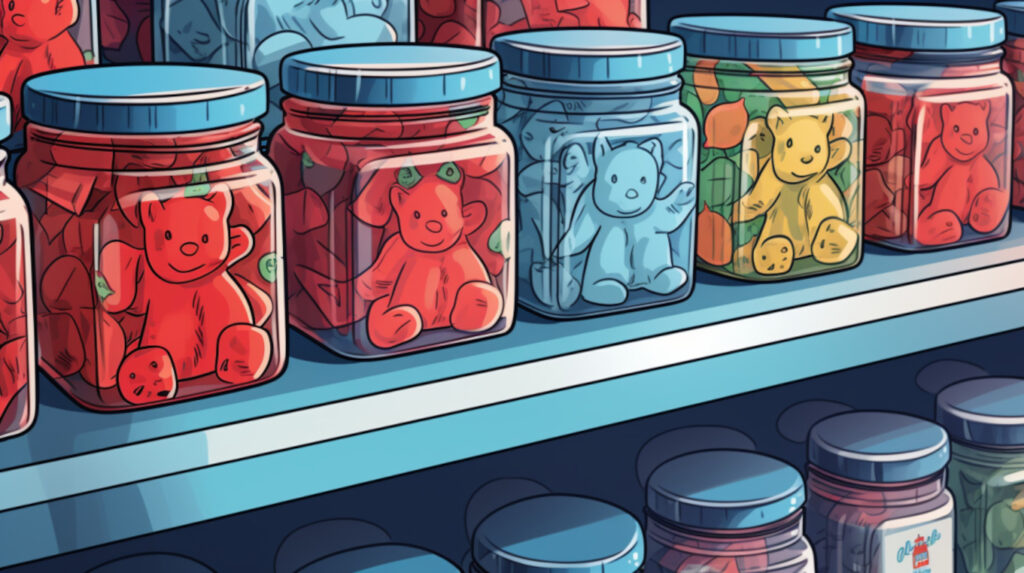
Start by clarifying what “better nights” means for you.
- If your goal is simply to unwind after an overstimulating day, a CBD-forward or balanced ratio may be enough.
- If you’re dealing with aches that make you toss and turn, a modest THC dose can add more body relief.
Whether you choose THC, CBD, or a THC:CBD ratio edible, start with low doses at first so you don’t overshoot your comfort zone.
Dose matters.
Both THC and CBD are biphasic, which means a low dose vs a high dose can create very different effects.
Using a small amount of THC may help you focus and feel relaxed, while higher doses can make you feel impaired or anxious. Low doses of CBD may energize some, while higher doses tend to promote relaxation.
The best advice is to ease into your nightly dose and evaluate your results over a few nights.5
Composition matters.
It’s not the dose, it’s the blend. Both science and popular opinion confirm that the mix of cannabinoids, terpenes, and botanicals in a gummy can subtly alter the experience.
Your choice from high-THC, various THC:CBD ratios, and federally legal CBD edibles. Whether you choose a CBD or THC dominant gummy, or ratio blends offer targeted therapeutic combinations to encourage decompression.
Set Your Strategy.
Base your plan for a better night on a simple trio: goal → tomorrow → tolerance.
- Your goals. If nighttime discomfort or stress is your main issue, a balanced 1:1 or THC + CBN formula can be a practical place to start. If you mainly want a soft landing without impairment, try high-CBD with minimal THC.
- Your day tomorrow. If you need to wake early and feel sharp, go lower on THC and take your gummy 60–90 minutes before lights out to minimize lingering effects.
- Your tolerance. If you’re new to edibles, most people begin with 2.5 to 5mg of THC. Some medical patients and experienced users sometimes use doses of 10mg or more. For all consumers, it’s best to start with a lower dose on the first night and increase over several nights if needed.
Track how nighttime gummies are working for you with a simple log for a week, noting the dose, time taken, how quickly you felt it, and how you felt in the morning.
Reading the Labels on Restful Gummies

Edible labels contain a lot of useful information. Here are some primary areas to review.
Dosage and Serving Size
If a pouch says 100mg THC and contains 10 gummies, that means the package totals 100mg and each gummy includes a dosage of 10mg THC. If you prefer a lower dose, you can easily cut a 10mg gummy in half to get 5mg, or divide it into four pieces, each equal to 2.5mg.
Check the label for the dosage in milligrams (mg) of each cannabinoid (e.g., THC, CBD, CBN) per piece and for the total package to understand the total profile.
The label may also list a serving size such as “1 gummy (4.5 g).” That 4.5 grams is the weight of the candy, not the dose of THC. In cannabis edibles, milligrams (mg) of cannabinoids is the dosage, and grams (g) is the weight. It’s a common mix-up: people see “4.5 g” and assume that’s the THC amount; it isn’t.
Composition
Ratios such as 1:1 THC:CBD or 1:1:1 THC:CBD:CBN describe the composition or blend of cannabinoids, not the strength. Composition can change the feel, but the milligrams(mg) per piece determine how strong the dose is.
Select ratios that support your relaxation goals. For example:
- THC-forward (e.g., 5–10mg THC with little/no CBD) tends to feel stronger and more impairing.
- 1:1 can feel more balanced.
- High-CBD/low-THC is a gentler option for a clear-headed, relaxing wind-down.
CBN content
CBN is mainstream in cannabis edibles for nighttime use. Many restful gummies include 5-10mg CBN per piece. Evidence is still emerging, but some consumers report CBN lowers sleep interruptions and nighttime discomfort.6
Terpenes
Not all edibles contain terpenes, but many bedtime edibles include myrcene, linalool, beta-caryophyllene, and other terpenes or botanicals. Making homemade edibles from terpene-rich flower is a great way to capture the potential entourage effect benefits of terpenes that may promote relaxation.
Extract type
Commercial edible formulas use either distillate or full-spectrum rosin. Distillate gives a consistent dose without added taste. Full-spectrum or rosin gummies contain more plant compounds and flavor, with some users reporting a more complex or layered experience.
Add-ins and allergens
Some edibles add “drowsy” botanicals like chamomile, valerian, L-theanine, or melatonin to enhance relaxation. If sugar or gelatin is a concern, look for labels indicating that the product is sugar-free, vegan, or gluten-free. If an edible process occurs in a facility that uses common allergens, such as milk, tree nuts, peanuts, wheat, or soy, it must be clearly labeled.
References
- Bachhuber M, Arnsten JH, Wurm G. Use of Cannabis to Relieve Pain and Promote Sleep by Customers at an Adult Use Dispensary. Journal of Psychoactive Drugs. 2019;51(5):400-404. doi:https://doi.org/10.1080/02791072.2019.1626953 ↩︎
- Vaillancourt R, Gallagher S, Cameron JD, Dhalla R. Cannabis use in patients with insomnia and sleep disorders: Retrospective chart review. Canadian Pharmacists Journal / Revue des Pharmaciens du Canada. 2022;155(3):175-180. doi:https://doi.org/10.1177/17151635221089617 ↩︎
- Conroy DA, Kurth ME, Strong DR, Brower KJ, Stein,MD. Marijuana use patterns and sleep among community-based young adults. Journal of Addictive Diseases. 2016;35(2):135-143. doi:https://doi.org/10.1080/10550887.2015.1132986 ↩︎
- Shannon S, Lewis N, Lee H, Hughes S. Cannabidiol in Anxiety and Sleep: A Large Case Series. The Permanente Journal. 2019;23(1). doi:https://doi.org/10.7812/tpp/18-041
↩︎ - Murillo-Rodríguez E, Sarro-Ramírez A, Sánchez D, et al. Potential Effects of Cannabidiol as a Wake-Promoting Agent. Current Neuropharmacology of action,with, vailable. 2014;12(3):269-272. doi:https://doi.org/10.2174/1570159X11666131204235805
↩︎ - Bonn-Miller MO, Feldner MT, Bynion TM, et al. A double-blind, randomized, placebo-controlled study of the safety and effects of CBN with and without CBD on sleep quality. Experimental and Clinical Psychopharmacology. 2023;32(3). doi:https://doi.orasincorporate/10.1037/pha0000682 ↩︎
The information in this article and any included images or charts are for educational purposes only. This information is neither a substitute for, nor does it replace, professional legal advice or medical advice, diagnosis, or treatment. If you have any concerns or questions about laws, regulations, or your health, you should always consult with an attorney, physician or other licensed professional.

